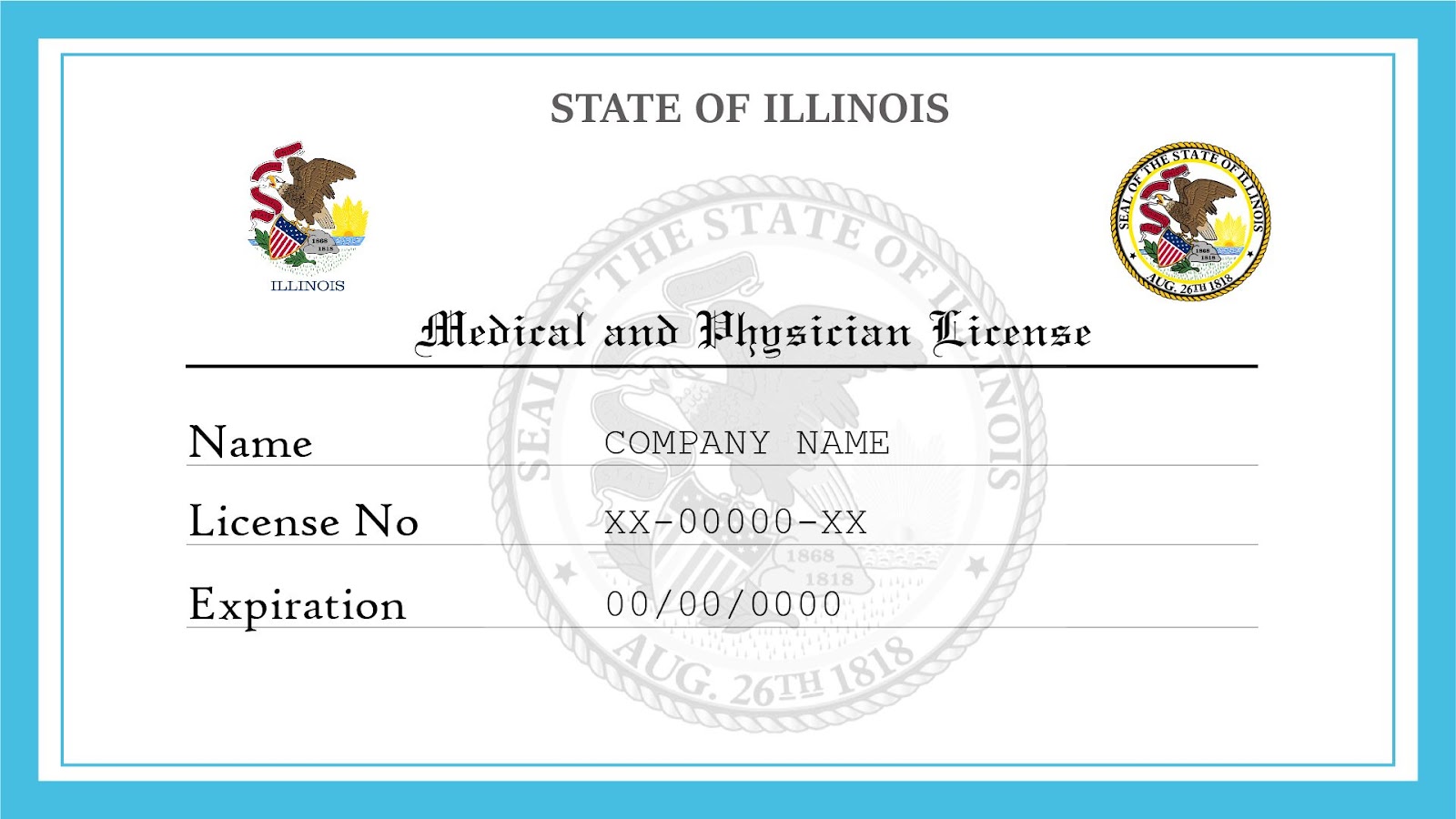From diagnosing ailments to advocating preventive measures, PAs play a multifaceted role that significantly impacts the health outcomes of individuals they serve. Whether you’re drawn to the field by a passion for medicine, considering a career change, or eager to contribute meaningfully to society, exploring the path to becoming a PA in Illinois unveils a world of opportunities and challenges.
This guide aims to illuminate the journey ahead, providing aspiring PAs with comprehensive insights and resources to navigate the complexities of entering this noble profession.
How to Become a Physician Assistant in Illinois?
To become a PA in Illinois, aspiring individuals must navigate several steps:
Choose Accredited Programs
When picking a physician assistant program, you’re laying the groundwork for your healthcare career. Accreditation is key –it’s like a stamp of approval that says the program meets top-notch education standards and sets you up for success in the field. Here are some key things to think about when checking out accredited programs in Illinois:
- Accreditation Status: Verify that the program is accredited by the Accreditation Review Commission on Education for the Physician Assistant (ARC-PA). Accreditation ensures that the program meets rigorous standards in curriculum, faculty qualifications, and clinical training opportunities;
- Curriculum Structure: Evaluate the curriculum structure to ensure it aligns with your learning preferences and career goals. Look for programs that offer a comprehensive curriculum covering essential topics in medical sciences, clinical practice, and professional development;
- Clinical Rotations: Investigate the program’s clinical rotation opportunities and affiliations with healthcare institutions. Diverse clinical experiences in various medical specialties will provide valuable hands-on training and exposure to different patient populations;
- Faculty Expertise: Consider the qualifications and expertise of the program’s faculty members. Experienced faculty with backgrounds in clinical practice, research, and education contribute to a robust learning environment and mentorship opportunities.
- Student Support Services: Explore the support services available to students, including academic advising, career counseling, and opportunities for professional networking. A supportive learning environment fosters student success and well-being throughout the program;
- Graduation and Certification Rates: Review the program’s graduation rates and success rates on the Physician Assistant National Certifying Exam (PANCE). High graduation and certification rates indicate the program’s effectiveness in preparing students for licensure and professional practice;
- Location and Facilities: Consider the program’s location and facilities, including classroom spaces, laboratories, and simulation centers. A conducive learning environment with access to state-of-the-art resources enhances the educational experience.
By carefully evaluating these factors, aspiring physician assistants can make informed decisions when choosing accredited programs in Illinois. Investing in a quality education sets the foundation for a fulfilling and successful career in healthcare.
2. NCCPA Certification
Obtaining certification from the National Commission on Certification of Physician Assistants (NCCPA) is a crucial milestone in the journey to becoming a licensed physician assistant in Illinois. The NCCPA certification process ensures that PAs possess the knowledge and skills necessary to provide high-quality patient care. Here’s what aspiring physician assistants need to know about the NCCPA certification process:
- Eligibility Requirements: Before applying for NCCPA certification, candidates must meet certain eligibility criteria. This typically includes graduating from an accredited physician assistant program and completing the required clinical training hours;
- Physician Assistant National Certifying Exam (PANCE): The PANCE is a comprehensive examination administered by the NCCPA. It assesses the medical knowledge and clinical skills of aspiring physician assistants across various domains, including anatomy, physiology, pharmacology, and patient evaluation. The exam consists of multiple-choice questions and covers a wide range of medical topics;
- Exam Preparation: Adequate preparation is essential for success on the PANCE. Candidates should utilize resources such as review courses, practice exams, and study guides to familiarize themselves with the exam content and format. Developing effective study strategies and dedicating sufficient time to review materials can increase the likelihood of achieving a passing score;
- Exam Administration: The PANCE is typically administered at Pearson VUE testing centers across the United States. Candidates must register for the exam through the NCCPA website and pay the required registration fee. The exam is offered multiple times throughout the year, allowing candidates to choose a testing date that aligns with their preparation timeline;
- Scoring and Results: The PANCE is scored on a scale ranging from 200 to 800, with a passing score set by the NCCPA. Candidates receive their exam results approximately two weeks after completing the exam. Those who pass the PANCE are awarded the Physician Assistant-Certified (PA-C) credential, indicating their certification status.
Once certified by the NCCPA, individuals can proceed with the licensure application process in Illinois. This typically involves submitting the necessary documentation to the Illinois Division of Professional Regulation, including proof of NCCPA certification and completion of other licensure requirements.
3. Licensure Application
After successfully completing the National Commission on Certification of Physician Assistants (NCCPA) certification process, aspiring physician assistants in Illinois must navigate the licensure application process to obtain authorization to practice medicine in the state. Here’s a detailed overview of the licensure application procedure:
- Application Submission: Candidates must submit a licensure application to the Illinois Division of Professional Regulation. The application packet typically includes forms provided by the regulatory body, along with supporting documentation such as proof of NCCPA certification, transcripts from accredited PA programs, and any additional required materials;
- Application Fee: Along with the licensure application, candidates are required to pay an application fee as determined by the Illinois Division of Professional Regulation. This fee covers the administrative costs associated with processing the application and conducting background checks;
- Notification of Employment: Before practicing as a physician assistant in Illinois, candidates must establish a formal partnership with a licensed physician. The supervising physician is responsible for submitting a Notification of Employment to the Division of Professional Regulation, indicating their intent to oversee the PA’s clinical practice. Additionally, the supervising physician must provide details regarding the scope of practice and any delegated responsibilities, including prescription privileges;
- Background Check: As part of the licensure application process, candidates may be required to undergo a criminal background check and provide evidence of good moral character. This ensures that licensed physician assistants uphold ethical standards and maintain public trust in the healthcare profession;
- License Issuance: Upon review and approval of the licensure application, the Illinois Division of Professional Regulation will issue a physician assistant license to the candidate. This license grants legal authority to practice medicine under the supervision of a licensed physician within the state of Illinois;
- Continuing Education Requirements: Licensed physician assistants in Illinois must fulfill continuing education requirements to maintain licensure. These requirements typically involve completing a specified number of continuing medical education (CME) credits over a defined renewal period. Continuing education ensures that PAs stay current with advancements in medical knowledge and best practices in patient care.
By completing the licensure application process, aspiring physician assistants fulfill the necessary requirements to practice medicine in Illinois under the supervision of a licensed physician. This pivotal step marks the beginning of their professional journey, enabling them to provide high-quality healthcare services and contribute to the well-being of individuals and communities across the state.
4. Maintain Licensure
Once you’ve got your PA license in Illinois, keeping it up to date is super important. Here’s the lowdown on how to do it:
- Renewal Time: Your PA license usually lasts about three years, expiring on March 1st of even-numbered years. Keep an eye out for renewal notices and forms on the Illinois Division of Professional Regulation’s website a few months before your license is up. Don’t forget to send in your application and fees on time to avoid any hiccups!;
- Continuing Education: Staying sharp is key, so make sure you rack up enough continuing medical education (CME) credits each renewal period. The Illinois Division of Professional Regulation sets the requirements, which might include attending classes or doing self-directed learning. Keep good records of your CME activities to breeze through the renewal process;
- Grow and Learn: It’s not just about ticking boxes – dive into professional development opportunities to level up your skills and patient care game. Joining conferences, workshops, and groups like the American Academy of Physician Assistants (AAPA) or the Illinois Academy of Physician Assistants (IAPA) can hook you up with resources, networking, and support;
- Stay in the Know: Healthcare’s always evolving, so stay on top of any changes to PA regulations and guidelines in Illinois. Keep an ear out for updates on what you can do, prescribing rules, and how you work with supervising docs. Being up-to-date means delivering top-notch care while staying within the rules;
- Check Your License: Don’t forget to give your license status a quick once-over using the Illinois Division of Professional Regulation’s online lookup tool. Make sure all your info’s correct and current. If anything changes – like your contact deets or where you’re practicing – be sure to let them know ASAP to keep everything shipshape.
By staying active in continuing education, boosting your skills, and sticking to licensure requirements, you’re not just keeping your license – you’re showing your dedication to giving top-quality healthcare every step of the way.
Conclusion
In this guide, we’ll explore accredited physician assistant programs in Illinois, how to get certified by the NCCPA, applying for licensure, and ways to keep your license up to date. Our goal is to give you helpful tips and advice to support your journey towards becoming a skilled and caring physician assistant, ready to serve your community and make a positive impact on healthcare in Illinois.



